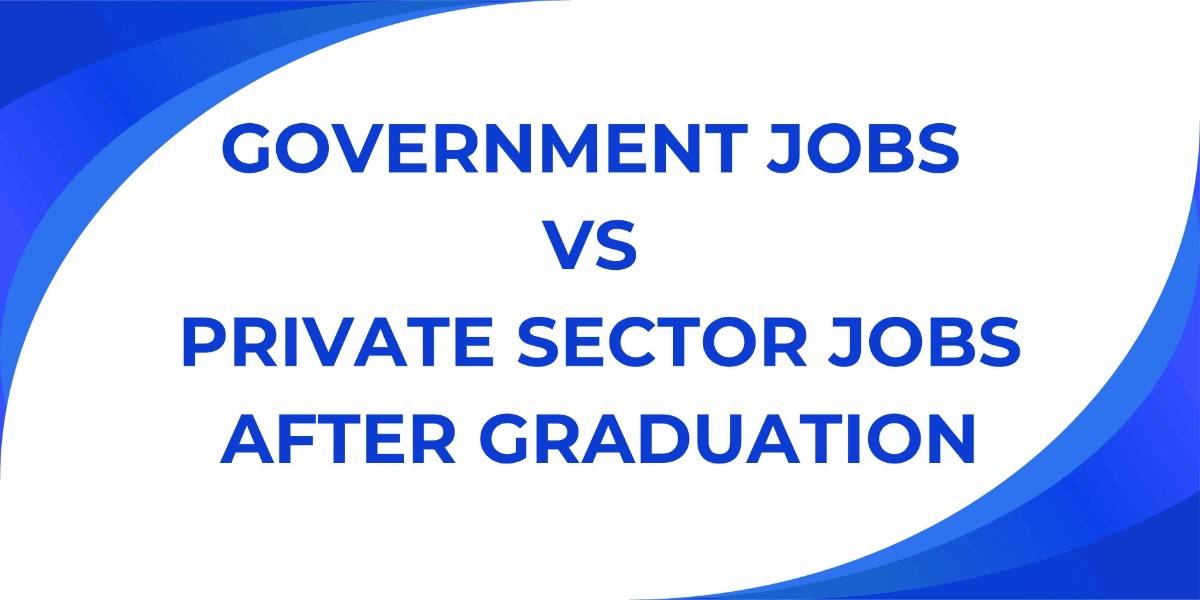


Discover which is better for you, government jobs or private sector jobs after graduation. Learn about job security, salary, growth, and work-life balance.
After graduation, one of the biggest questions every student faces is—what kind of job should I go for? For many young graduates, the decision often comes down to government jobs vs private sector jobs.
This blog will help you understand the major differences between government and private jobs, their advantages, challenges, and what kind of career path may suit your personality and goals.
Government jobs have always been highly respected in India. Whether it’s working for the civil services, public sector banks, Indian Railways, or other departments, these jobs are known for their stability, long-term benefits, and strong social standing.
One of the main reasons students prepare for government exams is job security. Once you get selected through an exam like UPSC, SSC, or IBPS, you usually stay in that role until retirement. This offers peace of mind, especially during times of economic uncertainty.
Government jobs often come with a fixed work schedule, which gives employees more personal time. You also get benefits like housing allowances, travel reimbursements, medical facilities, and pensions after retirement. For many, these perks are as valuable as the salary itself.
On the other side, private sector jobs are more fast-paced and performance-driven. This includes jobs in IT companies, marketing agencies, finance firms, start-ups, and multinational corporations. Students who want to grow quickly, work on exciting projects, and earn more in the early years of their career are often attracted to this sector.
Private companies usually offer higher starting salaries compared to government jobs. There are also more chances to move up the ladder quickly—if you show good results. You may get promoted within a few years, change companies for better roles, or even travel abroad for work.
The work environment in private companies is dynamic. You’ll be expected to learn fast, meet targets, and work in teams. This helps you develop many important skills like communication, leadership, and problem-solving.
However, private sector jobs can also be stressful. The pressure to perform is higher, work hours can be long, and job security may depend on your performance or the company’s financial situation. There are fewer long-term benefits like pensions, though some companies do offer health insurance and retirement plans.
Now that you understand both sides, the big question is: How do you choose what’s right for you? It really depends on your career goals, personality, and the kind of lifestyle you want.
If you are someone who values stability, fixed routines, and long-term benefits, then a government job might be the better fit. You’ll need to prepare well and be ready to wait for results, but the rewards are worth it if you’re looking for security.
Also, think about your academic background. For example, students with degrees in BCA, BBA, or BSc IT might find more opportunities in private companies, especially in tech and business roles. Students from other backgrounds may prefer to prepare for competitive exams like SSC or banking.
At Nalanda Degree College, we believe every student deserves the right guidance to choose their career path wisely. That’s why we prepare our students for both government and private sector jobs through dedicated training and mentoring.
For students aiming for government jobs, we offer support through:
For students interested in private sector careers, we offer:
There’s no single right answer when it comes to government jobs vs private sector jobs after graduation. Both paths offer great opportunities, and both come with their own challenges.
If you prefer peace of mind, long-term stability, and fixed routines, a government job may give you the satisfaction you’re looking for. But if you’re someone who thrives in fast-paced environments and wants to grow quickly, the private sector can offer you the exposure and rewards you desire.
